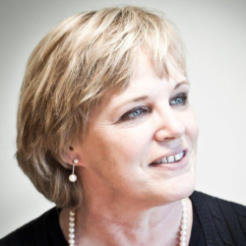Is frugging the new chugging? Jane Frost rails against the practice of fundraising under the guise of research.
As anyone who has received a nuisance call or been plagued with messages about PPI will know, it’s not pleasant to have someone try and trick you into parting with your money. What many don’t realise is how prevalent this activity is, and that it extends into the charity sector.
The practice of ‘frugging’ – fundraising under the guise of research – is closely associated with ‘sugging’, or selling under the guise of research.
Both are against the Code of Conduct of the Market Research Society (MRS), and contravene the Data Protection Act 1998, which is enforced by the Information Commissioner’s Office (ICO).
Unlike sugging, which often takes the form of ‘surveys’ done over the phone, frugging is usually done by post or through a newspaper insert. Often, there will first be a series of questions that are aimed at raising awareness of the charity. These are followed by the option to make a suggestion or become a member, with the helpful addition of a payment form.
The questions are frequently leading or biased, intended to persuade the consumer to donate rather than gain insight. Genuine research – not undertaken with an ulterior motive – is done to measure someone’s views rather than change them.
Frugging is a longstanding problem across the sector, extending to some charities that are household names. But while charities might see it as a way of increasing donations, it’s having wider repercussions for their operations.
By creating biased ‘research’, charities are missing out on valuable consumer insight. This feedback ordinarily allows organisations to make positive changes based on real responses.
However, if the public has been swayed by unbalanced methodology, much of this will be missing.
There is value to be gained in surveying a range of attitudes. Instead of trying to shoehorn people into donating, this research can provide insight into why some are choosing not to and where the gaps in awareness lie, and what can be done about it.
However, it’s not always easy to distinguish genuine fundraising from frugging, and as a result the public has become mistrustful of both. If people are wary about the method of collection, it raises further concerns as to how the data itself is being managed.
Much has been made recently of public opinion on data collection and privacy – it is vital that organisations and businesses in any sector adhere to the law when storing or sharing data.
The ramifications go beyond the legal: if data is misused, people will stop offering it up. It’s a big deal for the sector, as charities that do everything by the book find their reputation damaged by association and lose out on data and much-needed donations.
Organisations that fundraise under the guise of research are taking advantage of members of the public who don’t know their rights, showing a lack of respect for the people who help to fund their cause. It is unethical behaviour – if a member of the MRS was found to be frugging it would be grounds for an investigation under its disciplinary regulations, and if in breach of the Code of Conduct, they could be referred to the ICO.
Frugging undermines a charity’s operation, doing no favours for other organisations in the same sector. It jeopardises the use of credible research as a means of creating change and turns the public away from charities in need of funding. Instead of pushing the boundaries of ethical standards, charities should be at the forefront of working to raise them.
There are many legitimate ways of generating leads for both research and fundraising. Combining the two is not one of them.
Jane Frost is the chief executive of the Market Research Society









